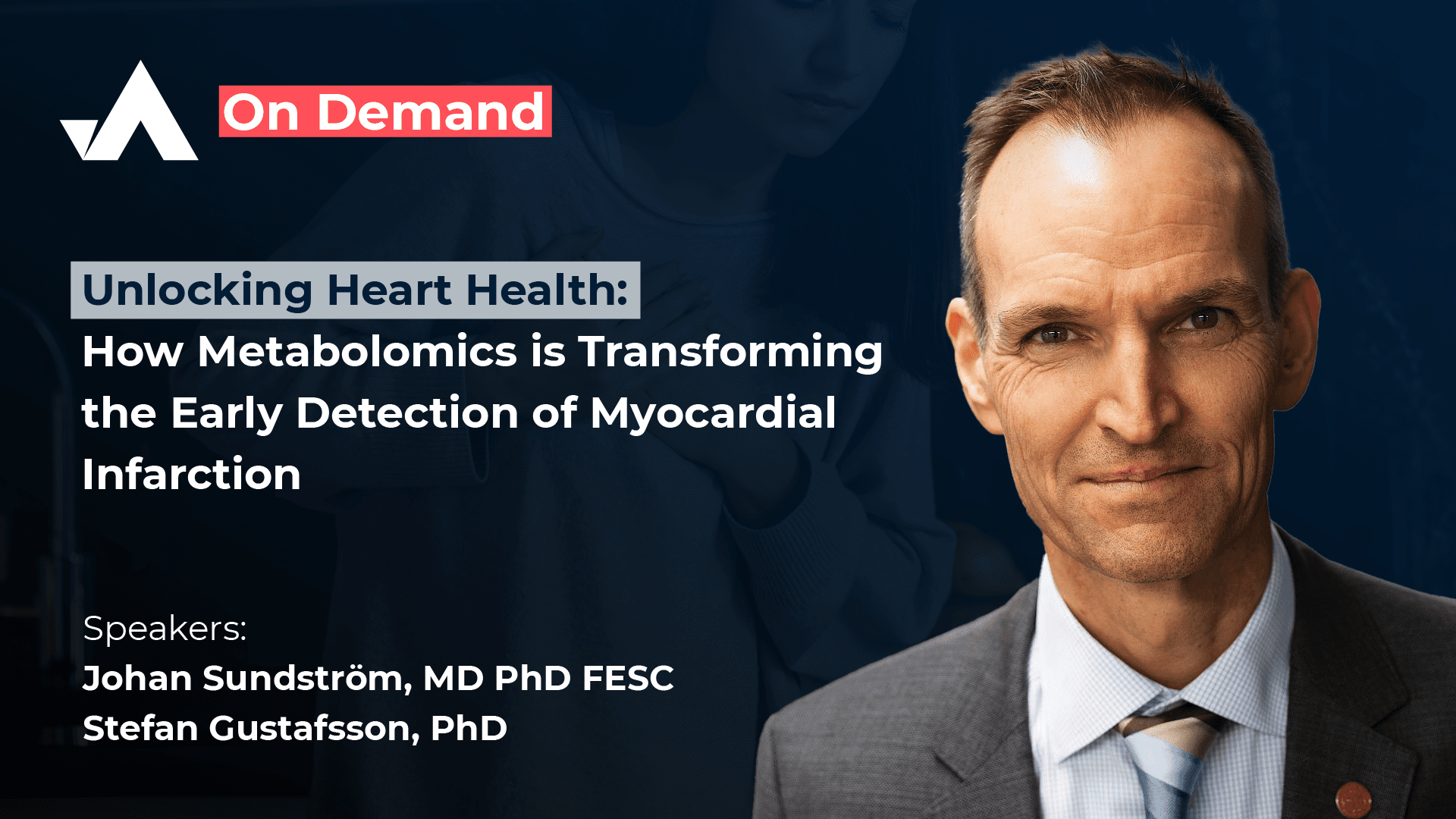ON DEMAND WEBINAR
On Demand: Unlocking Heart Health: How Metabolomics is Transforming the Early Detection of Myocardial Infarction

Imminent myocardial infarction, commonly known as a heart attack, occurs when blood flow to a part of the heart muscle is severely reduced or completely blocked, often due to a blood clot forming in a coronary artery narrowed by atherosclerosis. This condition can manifest through symptoms such as chest pain, shortness of breath, and radiating discomfort in the arms, jaw, or back. Risk factors include high blood pressure, high cholesterol, smoking, diabetes, obesity, and a sedentary lifestyle. Prompt recognition and intervention are crucial, as a myocardial infarction can lead to significant heart damage or even death if not treated quickly. Timely medical attention can restore blood flow and minimize the risk of complications, emphasizing the importance of awareness and understanding of this critical health emergency.
Metabolomics, the comprehensive study of metabolites within biological systems, has emerged as a powerful tool in cardiovascular research, particularly in the context of imminent myocardial infarction. By analyzing metabolic profiles, researchers can identify specific biomarkers associated with heart disease, enabling earlier detection and improved risk assessment of impending heart attacks. This approach provides insights into the biochemical changes that precede myocardial infarction, such as alterations in lipid metabolism, energy production, and inflammatory pathways. Furthermore, metabolomics facilitates the understanding of individual responses to therapies, paving the way for personalized medicine in cardiovascular care. As researchers continue to explore the intricate connections between metabolism and heart health, metabolomics stands to significantly enhance early intervention strategies and therapeutic developments in the fight against cardiovascular diseases.
In this webinar, Johan Sundström, MD PhD FESC and Stefan Gustafsson, PhD discuss their latest publication that explores biomarkers of imminent myocardial infarction. Their multiomic research explored protein and metabolite biomarkers that were associated with risk of imminent myocardial infarction and created a prediction model that could be used for early identification.
You will learn:
- About specific biomarkers associated with imminent myocardial infarction, enhancing early detection.
- Understand the role of metabolites and proteins in assessing the risk of heart attacks.
- Explore the prediction model developed for imminent myocardial infarction based on clinical and biomarker data.
- Gain insights into how the findings can improve primary prevention strategies for cardiovascular diseases.
- Understand how to design a successful cohort study
